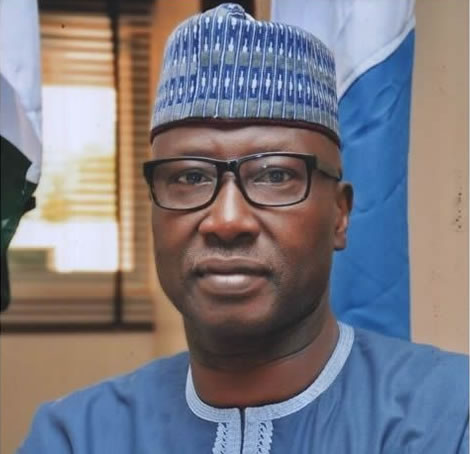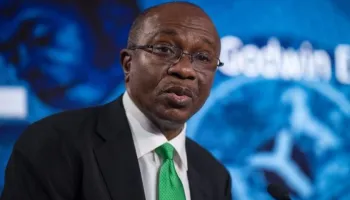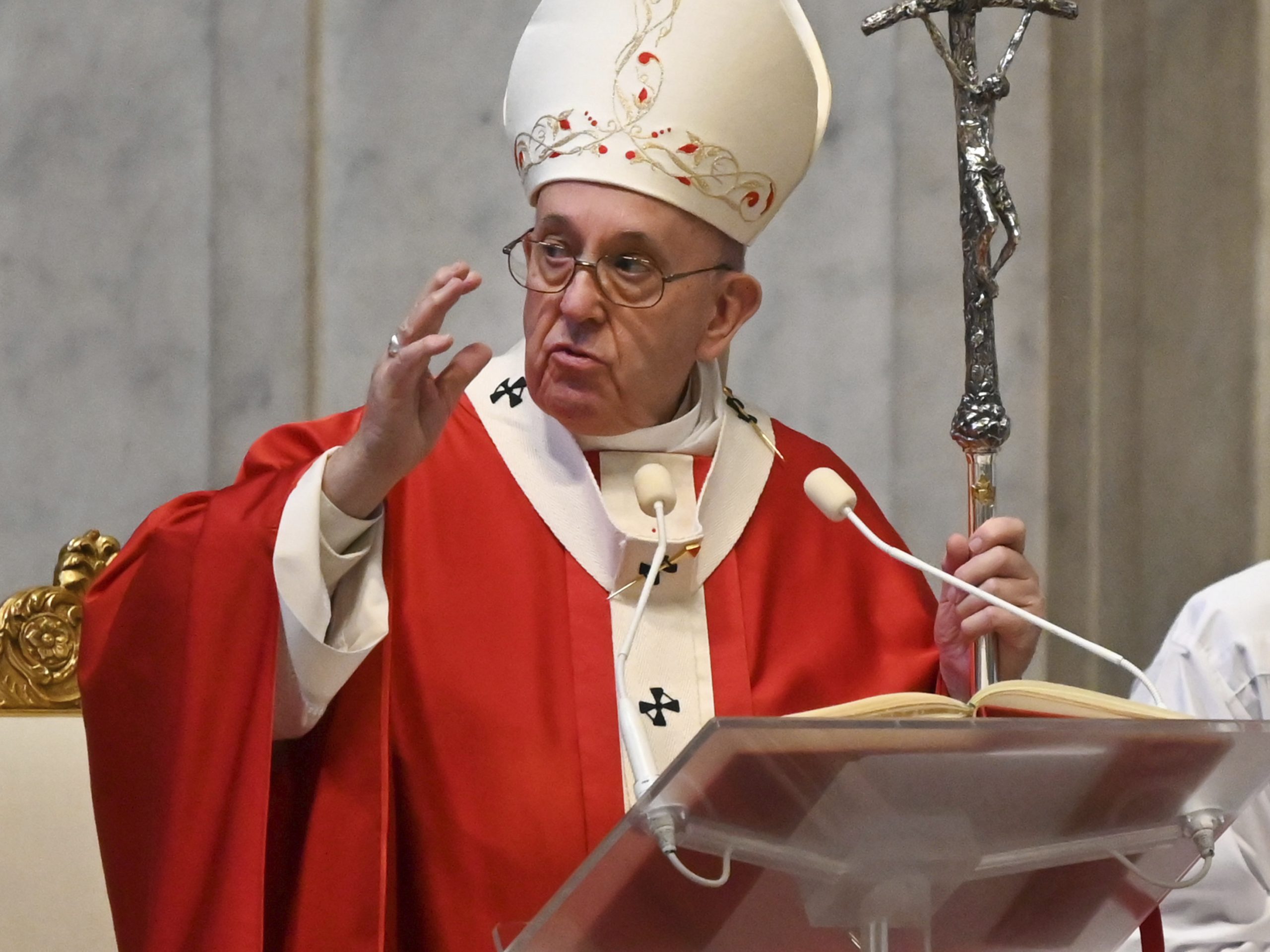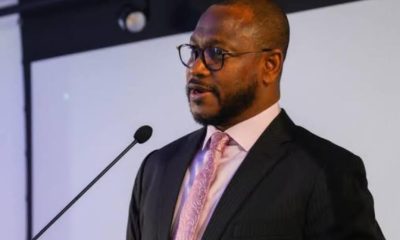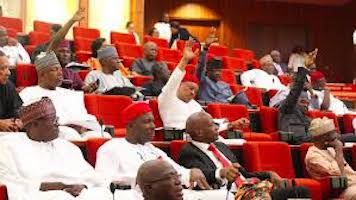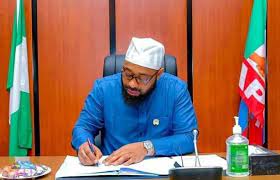Business News
Nigeria’s Prosperity Concentrated In Few Hands – Buhari
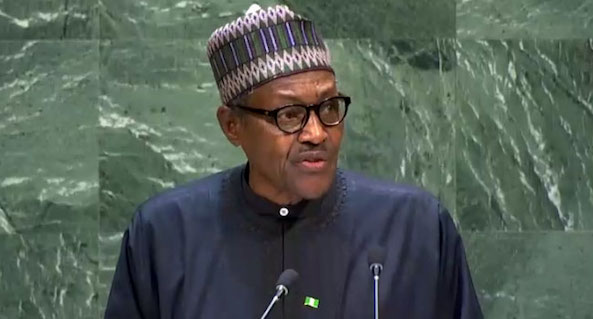
By Tony Obiechina, Abuja
President Muhammadu Buhari on Monday, lamented that a significant proportion of Nigeria’s prosperity was concentrated in the hands of a few people living in four or five States and the Federal Capital Territory.
The President stated this while declaring open the 25th Nigerian Economic Summit with theme “Nigeria 2050: Shifting Gears”, in Abuja.
This year’s economic summit focuses on what Nigeria would be in the year 2050 when many studies estimate that the population will rise to over 400 million people.
According to the President, while only five states have most of the wealthy people, the remaining 31 states have about 150 million people waiting for better opportunities to thrive.
President Buhari pointed out that a prosperous society is one where majority of its citizens have an acceptable standard of living and a decent quality of life.
He said his administration understood the need for Nigerians to have a better lifestyle adding that this was why measures have been put in place to reduce the level of unemployment and poverty.
“Today, many mistake prosperity with wealth. They are not necessarily the same. Experts and analysts explain economic trends by making references to indicators of wealth.
“Wealth, however, in its simplistic form, is money or other assets. In recent years, global events have shown that when a society and its leaders are driven and motivated by these alone, the ultimate outcome is a divided state of severe inequalities.
“But a prosperous society is one where majority of its citizens have an acceptable standard of living and a decent quality of life,’’ he said.
In order to address population growth, insecurity and corrupt practices in developing economies, there is need for policies and programmes that would focus on promoting inclusiveness.
He explained that his administration’s economic policies in the last four years had focused on the need to uplift the people out of poverty.
The President said the government would continue to come up with policies that would focus on delivering prosperity to all Nigerians through enhancing security; eliminating corrupt practices in public service; supporting sectors that will create jobs, and promoting socially-focused interventions to support the poorest and most vulnerable.
“Nigeria is a country with close to 200 million people living in 36 states and the FCT. A significant proportion of Nigeria’s prosperity today is concentrated in the hands of a few people living primarily in 4 or 5 States and the FCT. Some of the most prosperous Nigerians are here in this room.
“This leaves the remaining 31 States with close to 150 million people in a state of expectancy and hope for better opportunity to thrive. “This, in the most basic form, drives the migratory and security trends we are seeing today both in Nigeria and across the region,” he added.
Speaking on the focus of the summit, he said that his administration would equip the people with the means to seize any opportunities that may arise in the future.
He said the government would continue to invest in education, health care, infrastructure, security and strengthen and entrench the rule of law.
In her address, the Minister of Finance, Budget and National Planning, Mrs Zainab Ahmed said there was an urgent need to design policies that will not only address the rising population but ensure paradigm shift to a competitive private sector- led economic growth and development.
She said the summit would help to provide strategic and innovative ways of getting the maximum benefits from the expected demographic dividends.
Ahmed noted that the outputs of this Summit will be critical as the government works towards co-creating the Nigeria it envisioned.
He said ther recommendation of the conference would aid government in developing and implementing the next generation of national plans in line with 11 government priority areas.
The priority areas are macroeconomic stability through coordinated economic, monetary, fiscal and trade policies; fighting corruption and improve governance and improve health, education and productivity of Nigerians.
The plan also include ensuring sufficiency in power, and petroleum products; improve transportation and other infrastructure; drive industrialization, focusing on macro, small and medium-sized enterprises; improve security for all citizens and enhance agriculture self-sufficiency to achieve food security.
On the increase in Value Added Tax rate to 7.5 per cent, she said 5this was done as part of the funding options for the minimum wage increase.
She said the administration remains committed to increasing finance for investment health and education, to improve our human capital development indices.
“Our target is also to increase funding for capital expenditure such that this constitutes at least 30 percent of Federal budgeted expenditures. Given these aspirations, the government has been compelled to review our fiscal policies including the proposed VAT rate increase,” she added.
She charged the summit to come up with practical solutions on how government can sustainably finance the future, enablers that should be put in place to mobilize and unlock private sector capital, and the role that sub-national governments should play given the potentially huge fiscal space.
The Chairman, Nigerian Economic Summit Group Asue Ighodalo said that despite rising poverty rates, the population growth continues at a trajectory that should be cause for concern and decisive policy measures.
He said, “The United Nations projects that Nigeria’s population will double by the Year 2050 to 410 million, and we will become the third most populous nation in the world behind China and India.
“Basically, the population is projected to grow by a little over three per cent per annum. If true, and it does not seem unrealistic, GDP must grow by at least that much, year on year, for us to just maintain our current GDP per capita – this is without accounting for inflation.
“Clearly, we do not have that luxury. Our current GDP per capita, even at zero inflation, on its own, and more so when we factor in wealth distribution disparities, is not a metric we can afford to have stand still.”
He said the NESG is convinced that only consistent and inclusive economic growth, underpinned by a competitive, private sector-led, productive economy can move thenation toward real progress.
By 2050, he said majority of the country’s projected 400 million people will be under the age of 35, adding that there is need to confront the realities and craft a new national agenda that will proactively and urgently drive inclusive double-digit growth over the next three decades.
“It sounds daunting, but it is not impossible. It has been done before; by others in situations similar to ours, but never by accident.
“The kind of economy we require, that will earn us a seat at the table with regional and global giants, must be both deliberate and audacious. If we plan just to survive or maintain our current trajectory, we will have sacrificed the futures of a large number of the world’s future inhabitants,” he added.
Business News
Tinubu Congratulates Dangote on World Bank Appointment

By Jennifer Enuma, Abuja
President Bola Tinubu has congratulated Alhaji Aliko Dangote, the President of Dangote Group, on his appointment to the World Bank’s Private Sector Investment Lab, a body tasked with promoting investment and job creation in emerging economies.
In a statement by Special Adviser on Media and Publicity, Bayo Onanauga, the President described the appointment as apt, given Dangote’s rich private sector experience, strategic investments, and many employment opportunities created through his Dangote Group.
The Dangote Group became one of Africa’s leading conglomerates through innovation and continuous investment.
Dangote Group’s business interests span cement, fertiliser, salt, sugar, oil, and gas. However, the $20 billion Dangote Petroleum Refinery and Petrochemicals remains Africa’s most daring project and most significant single private investment.
“President Tinubu urges Dangote to bring to bear on the World Bank appointment his transformative ideas and initiatives to impact the emerging markets across the world fully” the statement said.

The World Bank announced Dangote’s appointment on Wednesday, as part of a broader expansion of its Private Sector Investment Lab. The lab now enters a new phase aimed at scaling up solutions to attract private capital and create jobs in the developing world.
The CEO of Bayer AG, Bill Anderson, the Chair of Bharti Enterprises, Sunil Bharti Mittal, and the President and CEO of Hyatt Hotels Corporation, Mark Hoplamazian, are on the Private Sector Investment Lab with Dangote.
The World Bank said the expanded membership brings together business leaders with proven track records in generating employment in developing economies, supporting the Bank’s focus on job creation as a central pillar of global development.
Business Analysis
Nigeria Customs Generates over N1.75trn Revenue in 2025
By Joel Oladele, Abuja
The Nigeria Customs Service (NSC) has generated an impressive N1,751,502,252,298.05 in revenue during the first quarter of 2025.
The Comptroller-General (CG) of the Service, Bashir Adeniyi, disclosed this yesterday, during a press briefing in Abuja.
According to Adeniyi, the achievement not only surpasses the quarterly target but also marks a substantial increase compared to the same period last year, reflecting the effectiveness of recent reforms and the dedication of customs officers across the nation.
“This first quarter of 2025 has seen our officers working tirelessly at borders and ports across the nation.
I’m proud to report we’ve made real progress on multiple fronts—from increasing revenue collections to intercepting dangerous shipments,” Adeniyi stated.He attributed this success to the reforms initiated under President Bola Tinubu’s administration and the guidance of the Honourable Minister of Finance and Coordinating Minister of the Economy, Olawale Edun.
The CG noted that the revenue collection for Q1 2025 exceeded the quarterly benchmark of N1,645,000,000,000.00 by N106.5 billion, achieving 106.47% of the target. This performance represents a remarkable 29.96% increase compared to the N1,347,705,251,658.31 collected in Q1 2024.
Adeniyi highlighted the month-by-month growth, noting that January’s collection of N647,880,245,243.67 surpassed its target by 18.12%, while February and March also showed positive trends.
“I’m pleased to report the Service’s revenue collection for Q1 2025 totaled N1,751,502,252,298.05.
“Against our annual target of N6,580,000,000,000.00, the first quarter’s proportional benchmark stood at N1,645,000,000,000.00. I’m proud to announce we’ve exceeded this target by N106.5 billion, achieving 106.47% of our quarterly projection. This outstanding performance represents a substantial 29.96% increase compared to the same period in 2024, where we collected N1,347,705,251,658.31.
“Our month-by-month analysis reveals even more encouraging details of this growth trajectory,” Adeniyi said.
In addition to revenue collection, Adeniyi said the NCS maintained robust anti-smuggling operations, recording 298 seizures with a total Duty Paid Value (DPV) of ₦7,698,557,347.67.
He stated that rice was the most seized commodity, with 135,474 bags intercepted, followed by petroleum products and narcotics.
“From rice to wildlife, these seizures show our targeted approach,” Adeniyi remarked, noting the NCS’s commitment to combating smuggling and protecting national revenue.
Adeniyi also highlighted key initiatives, including the expansion of the B’Odogwu customs clearance platform and the launch of the Authorized Economic Operators Programme, which aims to streamline processes for compliant businesses. The NCS’s Corporate Social Responsibility Programme, “Customs Cares,” was also launched, focusing on education, health, and environmental sustainability.
Despite these achievements, the CG noted that the NCS faced challenges, including exchange rate volatility and non-compliance issues. Adeniyi acknowledged the need for ongoing adaptation and collaboration with stakeholders to address these challenges effectively.
Looking ahead, the NCS aims to continue its modernization efforts and enhance service delivery, ensuring that it remains a critical institution in Nigeria’s economic and security landscape.
“Results speak louder than plans; faster clearances through B’Odogwu, trusted traders in the AEO program, and measurable food price relief from our exemptions. We’ll keep scaling what works,” he concluded.
BUSINESS
NSIA Net Assets Hit N4.35trn in 2024
By Tony Obiechina Abuja
The Nigeria Sovereign Investment Authority (NSIA) yesterday disclosed that its net assets grew from N156bn in 2013 to N4.35 trillion in 2024.
Similarly, the Authority has remained profitable for 12 consecutive years, leading to cumulative retained earnings of N3.
74 trillion in 2024.Managing Director and Chief Executive Officer of NSIA, Aminu Umar- Sadiq made these disclosures at a media engagement in Abuja, highlighting its audited financial results for the 2024 fiscal year.
According to him, the results underscored the resilience of the authority’s investment strategy and the strength of its earnings, driven by a well-diversified revenue base and robust risk management practices, despite a challenging global macroeconomic and geopolitical environment.
Total operating profits, excluding share of profits from associates and Joint Venture (JV) entities, increased from N1.17 trillion in 2023 to N1.86 trillion in 2024, driven by the strong performance of
NSIA’s diversified investment portfolio, infrastructure assets, gains from foreign exchange movements, and derivative valuations.
In addition, Total Comprehensive Income (TCI), inclusive of share of profits from associates and JV entities, reached N1.89 trillion in 2024, reflecting a 59 per cent increase from N1.18 trillion in 2023.
Core TCI (excluding foreign exchange and derivative valuation gains) rose by 148 per cent to N407.9 billion in 2024 compared to N164.7 billion in 2023, supported by robust returns on financial assets measured at fair value through profit and loss, including collateralised securities, private equity, hedge funds, and Exchange-Traded Funds (ETFs).
Umar-Sadiq said the authority’s outstanding financial performance in 2024 reflected the “strength of our strategic vision, disciplined execution and unwavering commitment to sustainable socio-economic advancement.”
He said, “By leveraging innovation, strategic partnerships and sound risk management, we have not only delivered strong returns but also created value for our stakeholders
“As we move forward, we remain focused on driving economic transformation, expanding opportunities, scaling transformative impact and ensuring long-term prosperity for current and future generations of Nigerians.”
The CEO reaffirmed the authority’s commitment to managing the country’s SWF, and delivering the mandates enshrined in the NSIA Act.
He said NSIA remained poised to continually create long-term value for its stakeholders by delivering excellent risk-adjusted financial results, developing a healthy and well-diversified portfolio of assets and large-scale infrastructure projects, and enhancing the desired social outcomes.
He noted that NSIA was committed to its mandate of prudent management and investment of Nigeria’s sovereign wealth.
“In adherence to its Establishment Act, NSIA prioritises transparency, disclosure, and effective communication with all stakeholders and counterparties,” he said.
He pointed out that in the year under review, a new board, led by Olusegun Ogunsanya as Chairman, was appointed by President Bola Tinubu, in accordance with the provisions of the NSIA Act.
The new board will provide strategic direction and oversight, in addition to playing a pivotal role in critical decision making.
He remarked that under the guidance of the Board, the Authority will retain focus on its primary mandate of creating shared value for all stakeholders based on its continued adoption of corporate governance practices.
“NSIA prides itself an investment institution of the federation established to manage funds in excess of budgeted oil revenues and its mission is to play a pivotal role in driving sustained economic development for the benefit of all Nigerians through building a savings base for the Nigerian people, enhancing the development of the county’s infrastructure, and providing stabilisation support in times of economic misadventure,” he added.

